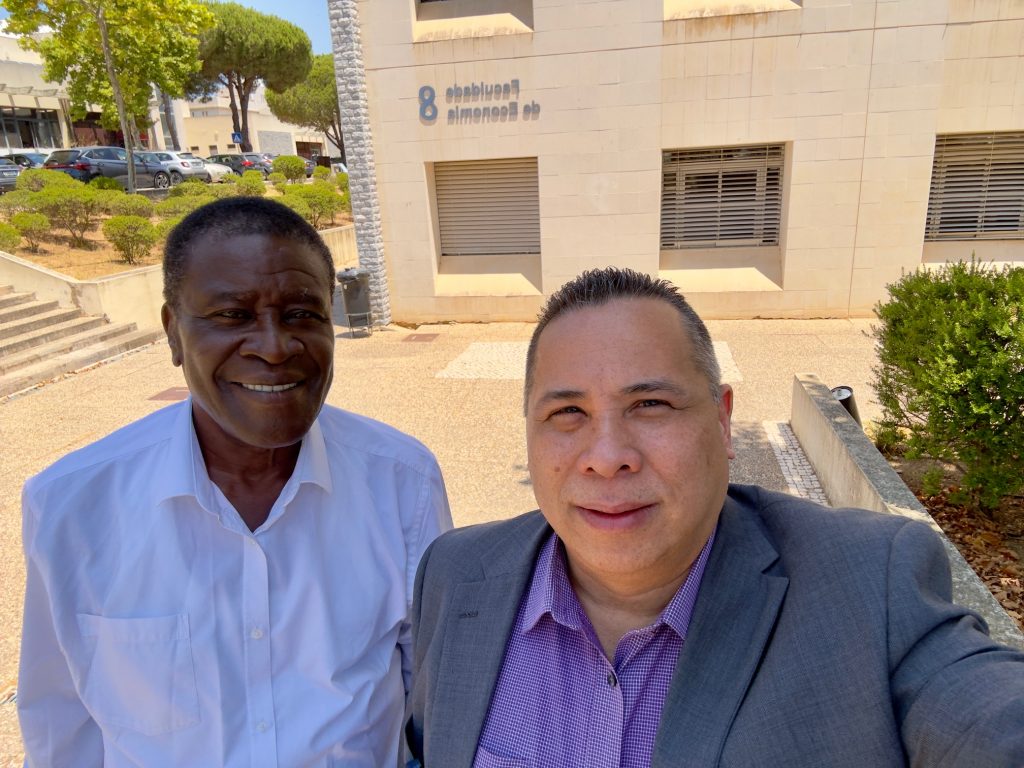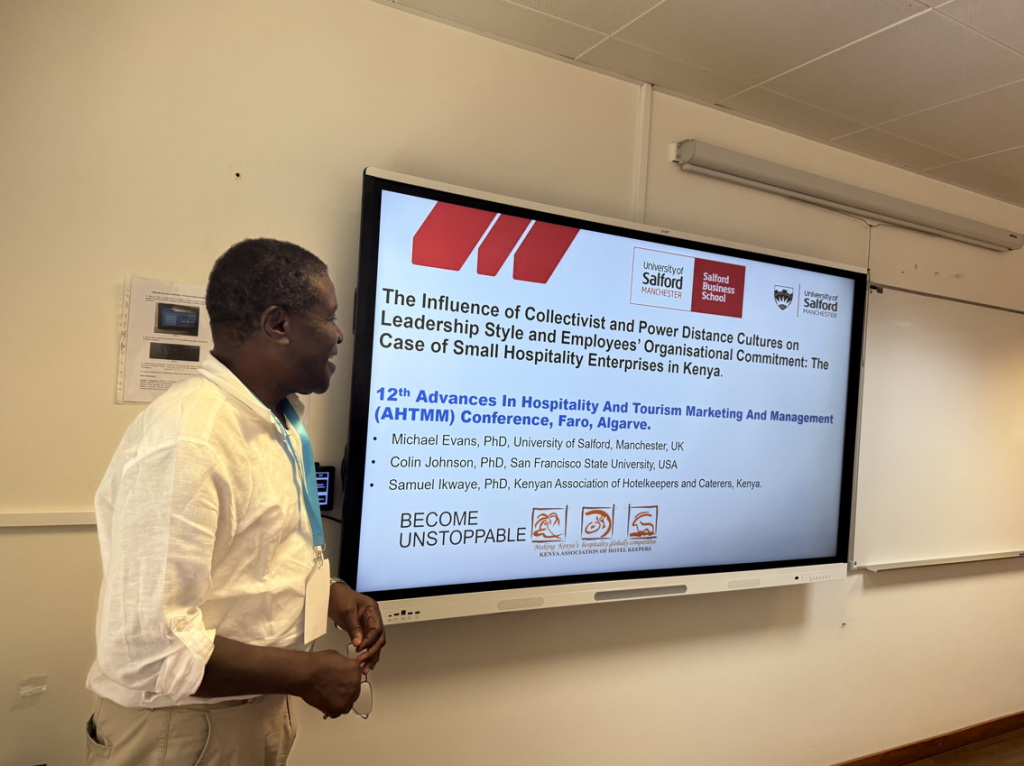The 12th Advances in Hospitality and Tourism Marketing and Management (AHTMM) Conference brought together leading scholars and practitioners at the University of Algarve in Faro, Portugal, to explore state-of-the-art research, trends, and innovations in the global hospitality and tourism industry.
Representing Salford Business School were Dr Michael Evans, Lecturer in Marketing, and Dr Sean Chung, Senior Lecturer in Marketing and Head of the International Business and Strategy Subject Group, who each presented research tackling pressing issues in leadership, culture, and artificial intelligence (AI).


Understanding AI-enabled personalisation and data trust in tourism
Dr Sean Chung presented insights from a new cross-national study exploring how travellers in the United States (U.S.) and Indonesia engage with AI-enabled personalisation in tourism services, and how trust, privacy concerns, and culture influence their willingness to share personal data.
As artificial intelligence (AI) becomes increasingly embedded in tourism, from virtual concierges to personalised travel itineraries, travellers face a trade-off between personalisation and privacy. This study investigates that paradox, examining how trust in AI, perceived privacy risks, and cultural values shape behaviour.
The study is built upon a robust theoretical foundation, combining several well-established models:
- Unified Theory of Acceptance and Use of Technology (UTAUT)
- Privacy-Calculus Theory
- Trust Model
- Hofstede’s Cultural Dimensions
Surveys with 600-800 leisure travellers (evenly split between the U.S. and Indonesia) aim to provide a comparative view across cultures, generations, and levels of tech-readiness. Early findings suggest that:
- Younger, tech-savvy travellers are more willing to disclose personal data
- Cultural context plays a strong role, with Indonesian participants showing higher concern over privacy
- Trust in AI is a key predictor of acceptance
As the tourism industry recovers post-pandemic and relies more heavily on digital tools, this research offers timely insights for hospitality providers and destination managers. It can inform the design of AI services that are not only intelligent and effective, but also ethical and culturally responsive.
Rethinking leadership in Africa’s hospitality sector: lessons from Kenya and Ghana
Dr Michael Evans presented findings from a qualitative, comparative study titled “The influence of collectivist and power distance cultures on leadership style and employees’ organisational commitment: the case of small hospitality enterprises in Kenya.” Building on previous research conducted in Ghana, this new study explores how leadership in the hospitality sector is influenced by deeply embedded cultural values.
Much of the current leadership literature remains grounded in Western models, which don’t always reflect the realities of diverse cultural contexts. This research responds to calls for more African-centred empirical students, focusing on collectivism vs individualism and power distance as key cultural dimensions.
Interviews with leaders and employees at four small Kenyan-owned hotels in Mombasa revealed how these cultural traits shape everyday leadership practices and perceptions of organisational commitment. The study found that:
- Collectivism fosters group cohesion and loyalty, influencing collaborative leadership styles.
- Power distance affects how hierarchy and authority are perceived and enacted.
Comparing Kenya and Ghana, the study highlights both shared and divergent traits, offering insight into which leadership strategies are universally relevant across African contexts and which require cultural adaptation.
Practical recommendations include developing leadership models that align with local values, encouraging inclusive management approaches, and fostering work environments where staff feel a strong sense of belonging and purpose.
The study not only contributes to culturally informed leadership theory but also reinforces the need to elevate African perspectives in global leadership discourse.
Reflections on the conference
Beyond presenting research, attending the AHTMM Conference offers invaluable opportunities for professional growth and networking. Dr Sean Chung reflected on his experiences over the past three years:
“Each experience has been deeply rewarding, not only in enhancing both personal and professional research networks, but also in providing invaluable exposure to the academic publishing landscape. The opportunity to interact directly with editors-in-chief from several 3- and 4-star ABS/AJG-rated journals in the tourism and hospitality field has offered unique insights into the publishing process and increased my understanding of what constitutes high-impact, publishable research in this domain. These conversations and informal exchanges have significantly shaped my scholarly approach and informed this current study.”